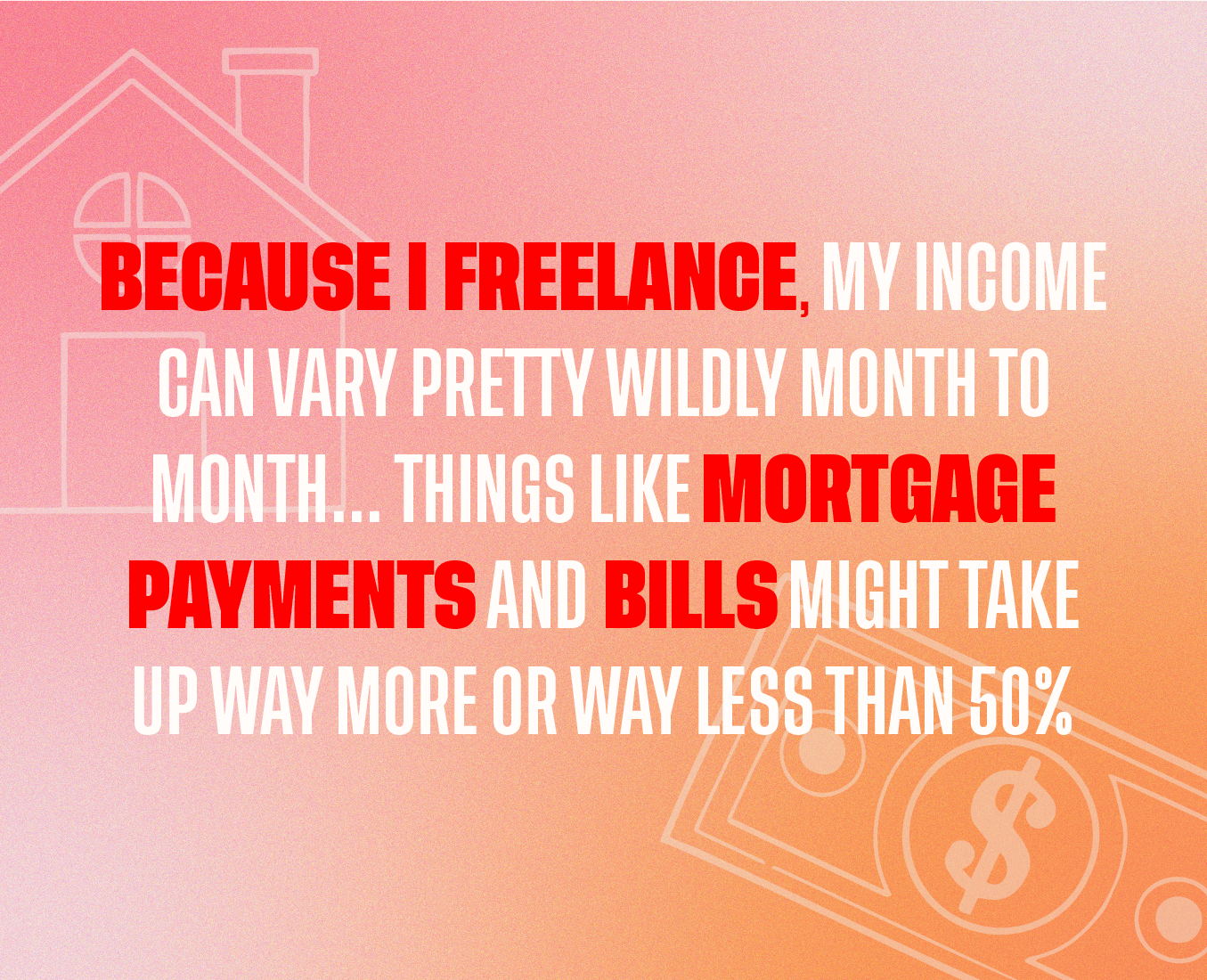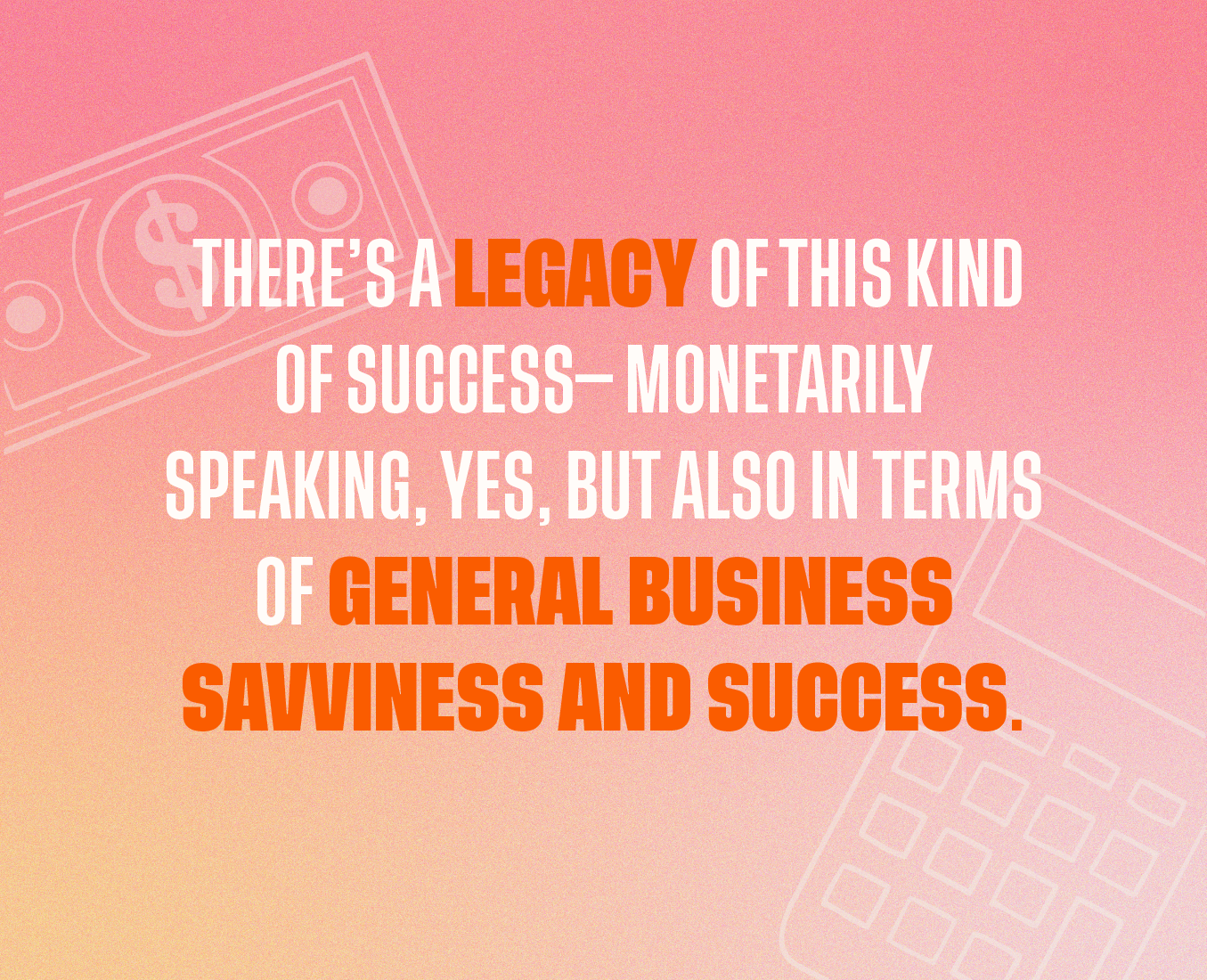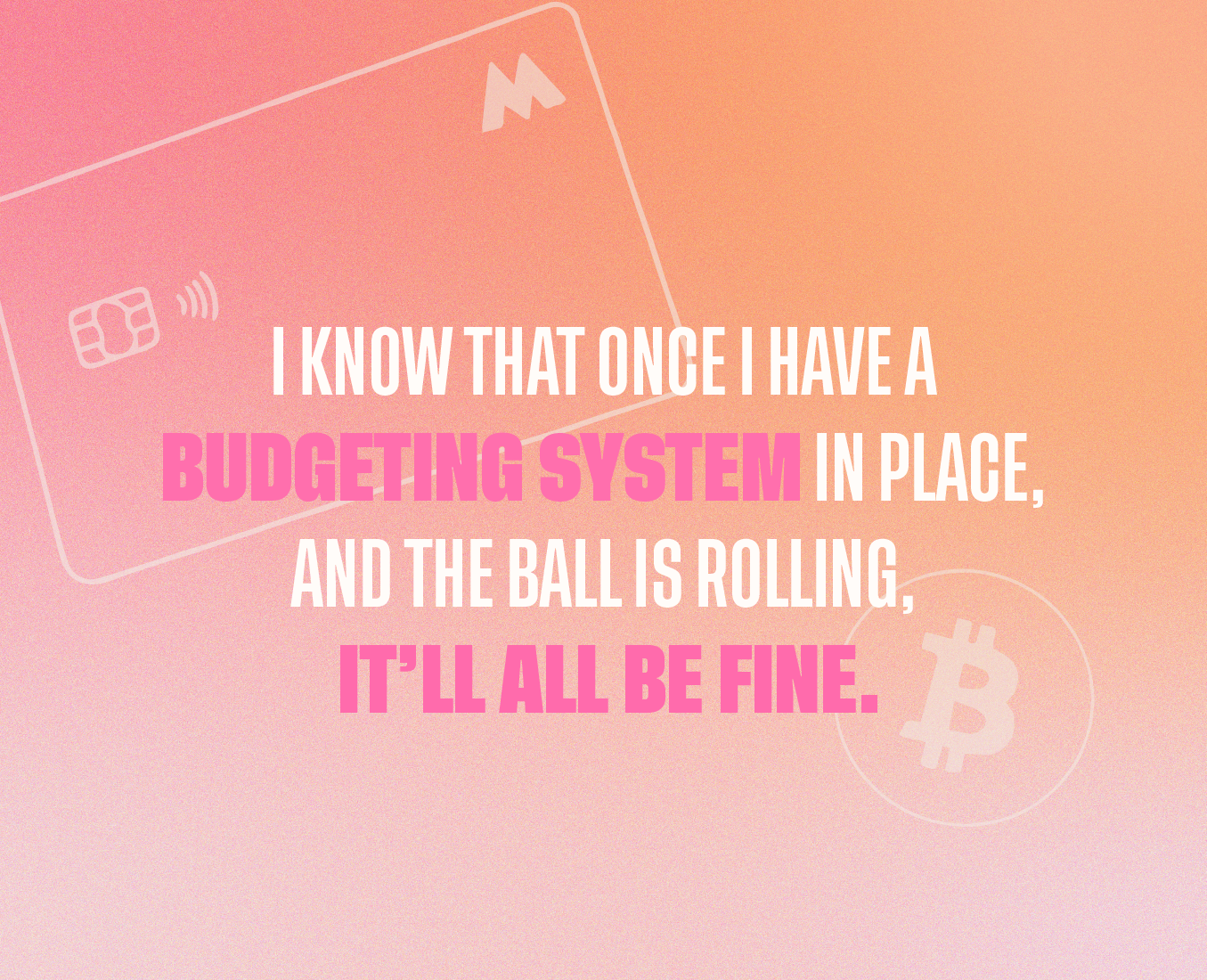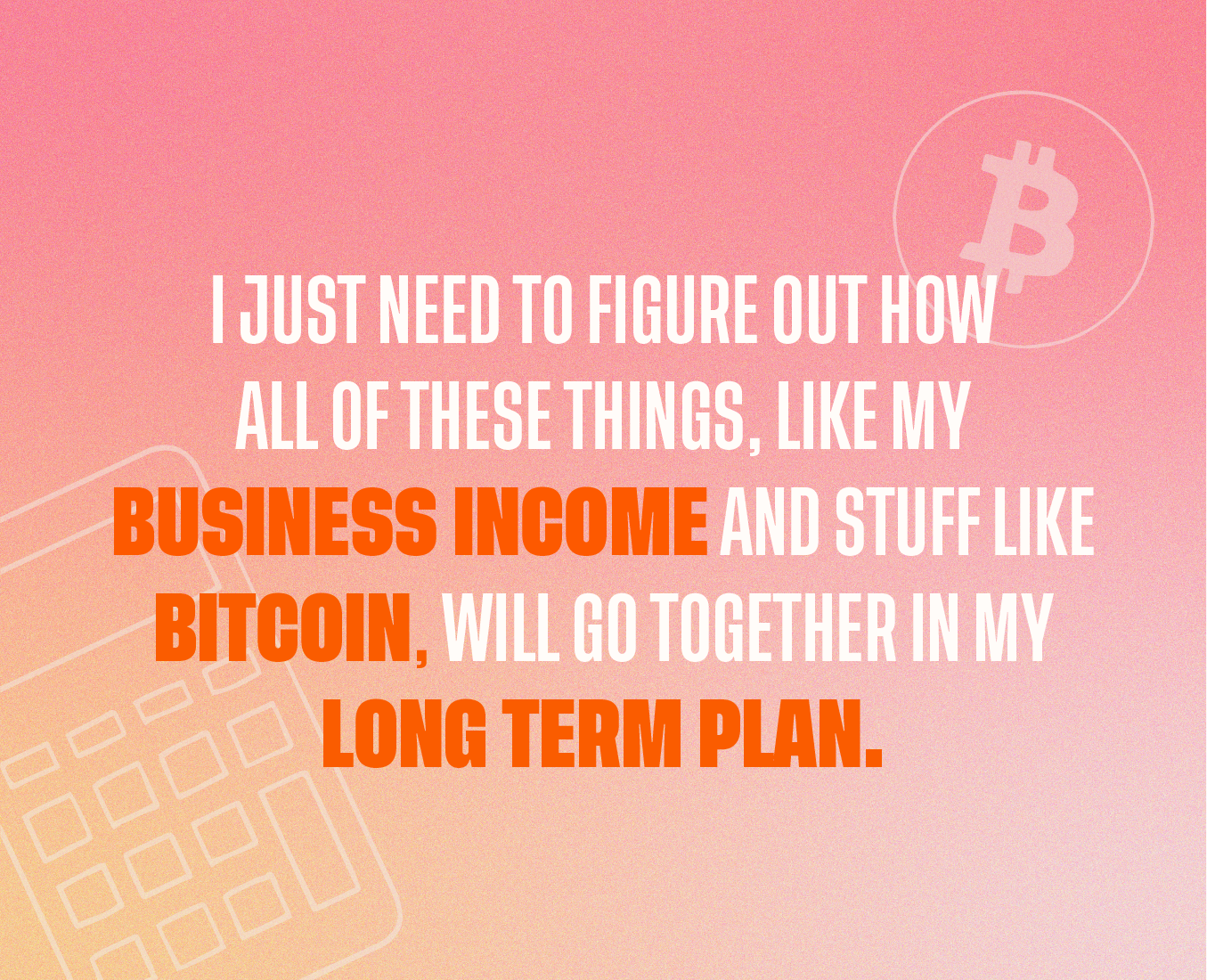Millionaire Mondays with Maxine
Maxine has a different relationship with money than many Canadians, and as a freelancer, she knows the many joys and perils of trying to make a budget that just friggin’ works. Some specifics of her budget and financial plan might be muddy, but the path forward is clear: the recipe to her success is part home ownership, part bein’ a kickass photographer, part generational wealth, with a sprinkle of Bitcoin to boot.
This interview is part of a lightly chaotic series where Megan, a writer, discusses millennial financial goals with her peers and their strategies to get there. Spoiler: we all want to be millionaires.
In this conversation: generational wealth and knowledge, trying to budget as a freelancer, and Olive the Australian Labradoodle.
As usual, this is when our lawyers tell me I need to remind you that nothing contained in this blog is investment advice or meant to suggest that Maxine’s strategy will work for you. Your financial situation is unique, like a lil snowflake! Always do your own research and, if you’re unsure, you can always reach out to an investment professional for help.
——————
Megan: Hey Max, how’s it going? Thanks for chatting with me. Can you introduce yourself and explain how you’re connected to Mogo?
Maxine: Sure! I’m Maxine Tamoto, and I’m a photographer. I work mostly in lifestyle and branding imagery for cool companies. In addition to that work, I do bookkeeping for my parents’ businesses, and I’ve also been freelancing for Mogo, creating walkthrough videos and TikToks!
Megan: A lot of people will read this interview having seen you and your co-star in Mogo’s TikToks—can you tell us about Olive, too? Give the people what they want! Dog information!
Maxine: Yeah! Her name is Olive. She’s six months old. She’s an Australian labradoodle, and she’s very sad right now.
Megan: Why!
Maxine: She was at the vet for a little procedure and has to stay indoors for a few days, so she’s going a bit nuts! But she’s also extra cuddly, so I’m not too mad.
Megan: This is the content people are here for. Thank you for that. Alright, so when we began planning this interview I sent you some broad talking points.
Maxine: Yes. And I want to say up front that, while I’m not necessarily as financially literate as I want to be, I come from a place of privilege. I just don’t want to misrepresent my circumstances because I know that I’m lucky.
Megan: Oh! That’s cool. This series is meant to get perspectives from all sorts of folks in all kinds of circumstances. So we can just be honest about yours.
Maxine: None of that “I’m a self made millionaire (but my parents gave me a million dollars also)” bullshit.
Megan: Exactly. That’s a good vibe. Okay, can you tell me about your level of financial literacy in three keywords?
Maxine: Yes! Well, no. Because I feel like I’m not really literate. I think I’m better off than I was before; I have learned about things like home ownership and Bitcoin and savings. And obviously, I run my own business. But I know I still need to learn more. Does that make sense?
Megan: Pauline’s keywords from a recent MMM interview were “better than before.” We dig it. It absolutely makes sense. Can you tell me more about running your business?
Maxine: Yeah! So I’ve been doing the bookkeeping for my parent’s businesses, like I said, and I think that’s informed how I divide up my finances. I have a business account which is separate from my personal account; money comes in, I pay my bills, and the rest kind of hangs out.
Megan: Do you use a budget, maybe like the 50/30/20 Budget we’re always yelling about here?
Maxine: Kind of, but honestly, not really. This is where I think I’d like to learn more.

Megan: So your budgeting style is a bit more freeform?
Maxine: Yeah, I’d say so—but it works. One other thing I don’t really have sorted out yet is my saving strategy. Right now it’s a bit vague.
Megan: Has freelancing made it difficult to sort out that strategy, given you can’t necessarily expect a predictable income?
Maxine: Yeah, definitely. I had set a goal for myself a few years ago, basically, that when I reached $100,000 in business income, I’d set up a serious investment plan. But that hasn’t happened yet, and I have no idea when it will happen! So I kind of just keep putting it off.
Megan: How come?
Maxine: Honestly, and this is why I wanted to make my little disclaimer above—because I feel like I’m pretty secure right now anyways. I do want to increase my level of financial literacy, I absolutely do. But I guess I feel it’s not an absolute must at this point in my life.
Megan: Yeah, you mentioned that you come from a position of privilege. Are you referring to like, generational wealth?
Maxine: Kind of, yes. My grandfather owned a successful business, my parents own a few businesses, and I own my own business now, too.

Megan: It sounds like you’re saying that you’ve got two layers of comfort here, one being the security of your family having earned money that you now have access to, and because there’s an expectation and a confidence that you’ll be successful in your own business, like your parents and grandparents.
Maxine: Yeah, exactly.
Megan: How do you approach your day-to-day budgeting, then?
Maxine: Well, my fiancé and I split everything 50/50 in terms of bills. Then, as far as groceries or other little things are concerned, I just buy what I want. And he does the same. He has a full time, stable job, so his income is something we can count on for consistency. But honestly we don’t really have a firm strategy. We’ve only been living together for about a year, and this has been working for us.
Megan: Do you use anything like the Mogo Visa* Platinum Prepaid Card , our lil prepaid card designed to keep your spending in check?
Maxine: Yes! Mine finally arrived, and I’m kinda nervous! I feel like it’s gonna call me out. And I don’t want to feel attacked!!

Megan: I get it. Sometimes I am simply not ready for the truth, and I want to keep buying my dumb little things. Same boat. Now, could you tell me about a financial challenge or success that you’ve faced? You said you’re a homeowner?
Maxine: With my fiancé, I am a homeowner. So I own half a home. That’s definitely my greatest financial success, but again, it didn’t come from my business. I had an inheritance and I used that to buy my home.
Megan: Well that makes sense, especially in a place like Vancouver. Did you always know you wanted to own a home?
Maxine: Yeah, I think so. It seemed like the right thing to do. I mean, I know people that have just bought a bunch of cars with inheritance money.
Megan: They’d better have been very shiny.
Maxine: Exactly. That’s a terrible investment; cars depreciate so fast. Homes don’t.
Megan: Do you feel like that kind of knowledge and intuition is part of that generational knowledge we were talking about earlier?
Maxine: Yeah, definitely. When I received my inheritance, my parents basically said “don’t be an idiot with this.” Additionally, a lot of my Dad’s friends from high school are real estate agents. So all of my “uncles” helped me buy this apartment.
Megan: Do you have a retirement plan in place? Naturally, owning your own home factors into that, I imagine.
Maxine: I don’t really have a plan yet, no, because I feel like things are still stabilizing. I’ve started experimenting a bit with Bitcoin in the Mogo app using the money I got from referrals. It’s very mysterious and sexy. I’m scared but intrigued. I check it every day.

Megan: A work in progress is a vibe we all dig. It’s time for the million dollar question, literally, wow: what’s your number? Do you know how much you’d like to retire with?
Maxine: So I think I’d like to retire with $4 million. I read about something called the 4% rule, which basically means that once you reach a sort of critical mass with your investments, you can live solely off the returns without ever having to withdraw from the principal balance.
Megan: And $4 million will let you live comfortably off the returns? That’s brilliant. Do you know what you’ll have to save to get there? In terms of monthly or annual investments?
Maxine: Honestly, no. I’m scared to figure it out. Freelancing means I could make like, $200 one month and $10,000 the next. I think in order for me to sort out my savings and investment plan in a practical way, I need to figure out first how to make my business more consistent. Maybe that’s selling prints, or renting a studio. I don’t know.
But I think the two things, consistency in my business and a strong grasp on my finances, are going to go hand in hand. I just have to sort it all out.
Megan: I feel that pain acutely. I feel like Olive. Sad and stuck inside. Unsure of my finances, as many dogs are. That freelance life is not for the faint of heart.
Maxine: It really isn’t. But I know what I have to do, and I know that I have support. So I’m excited to learn more and develop my own plan. I think that’ll be really cool.
——————
Maxine has a few challenging aspects of her financial life to juggle. As a freelancer, finding consistency in regular income can be incredibly challenging; without a consistent income, budgeting and saving can feel like an impossible feat.
But Maxine is a realist: she sees how all of these things—monthly income, retirement, home ownership, and generational wealth—are deeply interconnected.
If you’re in the freelance boat like us, and are stressin’, like us, know that you’re not alone. Try averaging out your monthly income over the course of the year and then applying the 50/30/20 Rule.
Financial literacy is within reach for all Canadians, and Mogo is here to help. Check out some of our other blog posts if you're looking to learn more about different ways to budget.
| GO TO MONEYCLASS |
This blog is provided for informational purposes only, is not intended as investment advice, and is not meant to suggest that a particular investment or strategy is suitable for any particular investor. If you’re unsure about an investment, you may wish to obtain advice from a qualified professional. Nothing herein should be considered an offer, solicitation of an offer, or advice to buy or sell securities. Buying and selling bitcoin is risky and you may suffer losses. The price of bitcoin is highly volatile and speculative and so you should never invest more in bitcoin than you can afford to lose. It’s also important to remember that past performance is no guarantee of future results.
*Trademark of Visa International Service Association and used under licence by Peoples Trust Company. Mogo Visa Platinum Prepaid Card is issued by Peoples Trust Company pursuant to licence by Visa Int. and is subject to Terms and Conditions, visit mogo.ca for full details. Your MogoCard balance is not insured by the Canada Deposit Insurance Corporation (CDIC).MogoCard means the Mogo Visa Platinum Prepaid Card.